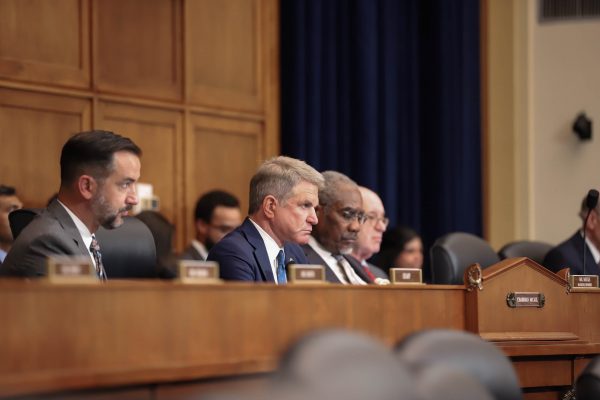Cornyn Blasts Biden Admin’s Innovation-Killing Drug Pricing Model
 U.S. Senator John Cornyn (R-TX) joined a group of his Republican colleagues in sending a letter urging Department of Health and Human Services (HHS) Secretary Xavier Becerra and Centers for Medicare and Medicaid Services (CMS) Administrator Chiquita Brooks-LaSure to stop the implementation of an innovation-killing drug pricing model, which could slash reimbursement rates for drugs approved through the Food and Drug Administration’s (FDA) Accelerated Approval Program (AAP).
U.S. Senator John Cornyn (R-TX) joined a group of his Republican colleagues in sending a letter urging Department of Health and Human Services (HHS) Secretary Xavier Becerra and Centers for Medicare and Medicaid Services (CMS) Administrator Chiquita Brooks-LaSure to stop the implementation of an innovation-killing drug pricing model, which could slash reimbursement rates for drugs approved through the Food and Drug Administration’s (FDA) Accelerated Approval Program (AAP).
They wrote: “By bringing groundbreaking therapies to patients years before these products could otherwise reach the market, the FDA’s Accelerated Approval Program (AAP) has saved countless lives while upholding strong safeguards and standards.”
“The Accelerating Clinical Evidence Model recently announced by the Biden Administration, unfortunately, risks undermining or even reversing this trend, triggering access gaps for seniors, as well as imposing cuts on frontline providers.”
“If proposed and finalized as described, this profound policy shift would inevitably chill incentives for leveraging the FDA’s game-changing expedited regulatory avenue, which has served patients with life-threatening diseases for decades. Later approvals and access delays would follow.”
“We all share the goal of improving prescription drug access and affordability, but this model represents a step in the opposite direction for seniors. We strongly encourage you not to pursue it any further.”
Background:
The Accelerating Clinical Evidence Model has attracted concerns from a range of stakeholders, including patient advocates and providers.
In their letter, the Senators highlight key concerns with the model, as described in the Secretary’s report, noting, among other issues, its potential to:
- Slash reimbursement rates for drugs approved through the FDA’s AAP;
- Further deter innovation and timely drug development by undermining the accelerated approval pathway;
- Delay patient access to life-saving therapies by discouraging drugmakers from pursuing accelerated approval;
- Hindering cancer care and therapeutic innovations for other conditions with insufficient treatment options;
- Stray from the CMS’s statutory mission and purpose by supplanting FDA decision-making; and
- Slash reimbursement rates for frontline health care providers.
The letter is signed by Senators Cornyn, Mike Crapo (R-Idaho), John Barrasso (R-Wyoming), Marsha Blackburn (R-Tennessee), Ted Budd (R-North Carolina), Shelley Moore Capito (R-West Virginia), Susan Collins (R-Maine), Kevin Cramer (R-North Dakota), Steve Daines (R-Montana), Cindy Hyde-Smith (R-Mississippi), James Lankford (R-Oklahoma), Roger Marshall (R-Kansas), Jim Risch (R-Idaho), Marco Rubio (R-Florida), Rick Scott (R-Florida), Tim Scott (R-South Carolina), Thom Tillis (R-North Carolina), and Roger Wicker (R-Mississippi).
Full text of the senators’ letter can be found here and below.
March 8, 2023
Dear Secretary Becerra and Administrator Brooks-LaSure:
For far too many seniors and Americans with disabilities, delays in access to high-quality medical treatments can mean the difference between life and death. With respect to physician-administered drugs and biologics, the Medicare program has traditionally reflected this reality, applying the same general coverage and reimbursement policies across all medications deemed safe and effective by the Food and Drug Administration (FDA), regardless of their approval pathway. By bringing groundbreaking therapies to patients years before these products could otherwise reach the market, the FDA’s Accelerated Approval Program (AAP) has saved countless lives while upholding strong safeguards and standards.
The Accelerating Clinical Evidence Model recently announced by the Biden Administration, unfortunately, risks undermining or even reversing this trend, triggering access gaps for seniors, as well as imposing cuts on frontline providers. As envisioned by the Secretary’s February 14 report, this model would serve to erode the AAP by slashing Medicare payment rates for medicines approved through the accelerated approval pathway. If proposed and finalized as described, this profound policy shift would inevitably chill incentives for leveraging the FDA’s game-changing expedited regulatory avenue, which has served patients with life-threatening diseases for decades. Later approvals and access delays would follow. Even for drugs still opting for the accelerated approval pathway, inadequate reimbursement for medical providers could force clinicians to steer Medicare beneficiaries away from potentially life-saving treatments, or to shift patients toward higher-cost sites of care. With these and various other concerns in mind, we urge you not to move forward with testing this misguided experimental initiative.
As of last December, the FDA had approved a total of 290 treatments through the AAP, enabling expedited availability for therapies targeting a wide range of conditions, from cancer and HIV/AIDS to sickle cell disease. Numerous studies have found that drugs opting for the accelerated approval pathway reach patients an average of more than three years before they would have otherwise. As an analysis published last year illustrates in explicit terms, for even a single product, the AAP can mean hundreds of thousands, if not millions, of added or enhanced years of life for Americans. Moreover, the FDA has subjected AAP applicants to rigorous criteria and quality controls, extending the pathway only for safe and effective medicines likely to meet an unmet need for a serious health condition. As the agency has repeatedly affirmed, “Drugs granted accelerated approval must meet the same statutory standards for safety and effectiveness as those granted traditional approval.”
The Accelerating Clinical Evidence Model appears to call this paradigm into question, treating drugs approved through the AAP as substandard and penalizing frontline providers who choose to administer products that advance through this pathway, regardless of clinical value. The deterrent effects on research and development, on utilization of accelerated approval, and on prescribing of innovative products could all prove dire for patients. To take one crucial example, the test runs directly counter to the President’s Cancer Moonshot, particularly given that an estimated 85 percent of drugs granted accelerated approval between 2010 and 2020 were approved for oncology indications. Delays in access to breakthrough cancer technologies would pose painful consequences for seniors from all walks of life.
In moving forward with such a model, the Centers for Medicare and Medicaid Services (CMS) would also stray from its statutory purpose and role and take on responsibilities delegated by Congress to the FDA. The FDA, in turn, would depart from its own Congressional directives and mission in consulting with CMS on the test’s parameters, including, presumably, with respect to reimbursement-related decisions. The model thus doubles down on a trend initiated through CMS’s unprecedented and restrictive national coverage determination for an entire class of potential Alzheimer’s disease therapies, where the agency similarly supplanted the FDA as the de facto arbiter of drug safety and effectiveness and bifurcated coverage based on a medication’s approval pathway.
While the Secretary’s report cites the model as an incentive for timely completion of confirmatory trials, Congress enacted a suite of policies last year to provide the FDA with extensive authorities and tools aimed at achieving that goal. For medicines treating diseases like Alzheimer’s and certain cancers, such trials may still take years to complete, even if initiated as quickly as possible. That reality, in fact, formed the basis for Congress’s creation of the AAP in the first place. Punitive treatment of products that opt for accelerated approval sends a precarious signal to patients, providers, payers, and the public that CMS lacks confidence in this life-saving pathway.
We all share the goal of improving prescription drug access and affordability, but this model represents a step in the opposite direction for seniors. We strongly encourage you not to pursue it any further. If you have questions, please contact Conor Sheehey of the Senate Finance Committee staff. We look forward to reviewing your response.







